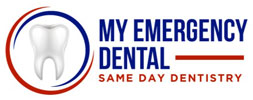What medications can interfere with dental treatment?
Immunosuppressants
● Blood Thinners. Blood-thinning medications such as warfarin, heparin, and aspirin can increase the risk of hemorrhaging during dental procedures. It is essential for dental professionals to be aware of a patient’s medication history in order to take the necessary precautions and modify treatment plans as needed.
● Bisphosphonates. These medications, which are frequently prescribed for osteoporosis and certain cancer treatments, can occasionally cause osteonecrosis of the mandible. Patients taking bisphosphonates must inform their dentist or orthodontist of their medication history, as dental procedures may require special precautions.
● Immunosuppressants. Medications that suppress the immune system, such as those prescribed for organ transplants or autoimmunity, can increase the risk of oral infections. Effective management of oral health while taking these medications requires close communication between the patient, his or her physician, and the dentist.
● Antidepressants. Some antidepressants, particularly tricyclic antidepressants and selective serotonin reuptake inhibitors (SSRIs) can produce dry mouth as a side effect. This can increase the likelihood of dental caries and oral discomfort. Dentists may recommend additional preventive measures, such as increased hydration, saliva substitutes, or modified oral hygiene practices, to patients with dry mouth.
It is essential for patients to inform their dentist of all medications, including over-the-counter medications and dietary supplements. This information enables the dentist or orthodontist to modify the treatment plan to the patient’s specific needs and minimize any potential complications or interactions.
Heartburn Medications
Patients with chronic heartburn are frequently prescribed proton pump inhibitors (PPIs) like Pantoloc and omeprazole when getting dental implants. By inhibiting the enzyme responsible for producing acid in the stomach wall, these drugs lower acid production. PPIs may lower the amount of calcium that our bodies can absorb, which could lower bone density and increase the risk of fractures overall. According to studies, those who use PPIs have a 4.30 times higher chance of dental implant failure; they may influence how bones recover and fuse together.
Bisphosphonates
As the field of medicine is advancing, increasing the average lifespan and the aging baby boomer generation, we are seeing a large increase in elderly patients. Most of them require medication to maintain their health. It is also common for these patients to need dental extractions, and many are electing to replace teeth with dental implants.
Medication history is an important consideration when discussing treatments.
Anticoagulants like Warfarin, Eliquis, and Xarelto as well as Antiplatelet medications such as Aspirin, Plavix, and Brilinta can increase the risk of bleeding during and after treatment. It is important for clinicians to be up to date on the protocols for these medications and seek consultation with their doctors before extracting teeth. Some of these medications need to be out of the system before surgery. Others just require extra care in managing increased bleeding.
When discussing extractions and dental implants with patients, it is extremely important to determine if the patient is on bisphosphonate drugs and which drug they are taking. Some examples of bisphosphonate drugs are Fosamax, Actonel, and Zometa. Bisphosphonates increase the risk of MRONJ or Medication-Related Osteonecrosis of the Jaw.
In lay terms, the bone dies when exposed to air. It can be devastating to the patient’s jawbone. Some of the more potent ones are given intravenously while others are oral. There is less of a risk when taking oral bisphosphonates. I like to get a medical consultation with the patient’s doctor if I suspect the use of bisphosphonates. There have been times when a patient didn’t know they were taking one of these drugs and it’s revealed by their physician. Since it is not in a pill form in front of them daily, it is common for them to forget.
Steroids
Steroids are medications that are often used to treat inflammation and pain. They can be effective for managing certain conditions, though, they can also increase the risk of infection and slow down the healing process. Inform your dentist if you are taking any steroids, as they may need to adjust your treatment plan to minimize these risks.
Anticoagulants
Anticoagulants, also known as blood thinners, are medications that are commonly used to prevent blood clots. While these medications are necessary for many people with certain medical conditions, they can increase the risk of bleeding during dental procedures.
This is a crowdsourced article. Contributors' statements do not necessarily reflect the opinion of this website, other people, businesses, or other contributors.





